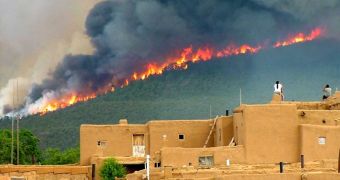According to officials at the US National Science Foundation (NSF), the organization will award a total of $21 million to grants seeking to explain and better understand how we, as a species, interact with out environment. The accepted study proposals are extremely varied, and cover numerous topics.
Lately, the coupled study of natural and human systems has become increasingly appealing to multiple research teams, made up of educators, scientists and engineers. This multi-disciplinary approach is making it easier for experts to understand systems as a whole, rather than piece-by-piece.
NSF is leading this endeavor as a multi-directorate program. The research began more than 5 years ago, and will probably go on for many years in the future, provided that funds are available for such studies.
The Directorates for Biological Sciences (BIO), Geosciences (GEO) and Social, Behavioral & Economic Sciences (SBE) are the primary contributors to the endeavor, although other groups also contribute smaller parts of the necessary funds.
The NSF Dynamics of Coupled Natural and Human Systems (CNH) program is currently one of the most important the Foundation is engaged in, especially in terms of scopes and goals. If all science teams come through, we main be able to understand natural processes and cycles in more detail.
At the same time, the new data will also be placed in relation to human behaviors and decisions. These are factors that have contributed a great deal to the current state of affairs, especially since the onset of the Industrial Revolution, centuries ago.
“This year's CNH awards highlight the need for scientists from different fields to work together and benefit from each other's perspectives to gain an understanding of the complex ways people interact with Earth's natural systems,” Tom Baerwald explains.
“Findings from these projects will help individuals and groups address environmental problems more effectively,” adds the investigator, who is the CNH program director at the NSF SBE.
“By bringing together researchers from a wide variety of academic fields, the projects will provide valuable new insights into the ways in which we, our environment, and the natural resources we rely on for our survival act as one interconnected system,” GEO CNH program director Sarah Ruth says.

 14 DAY TRIAL //
14 DAY TRIAL //